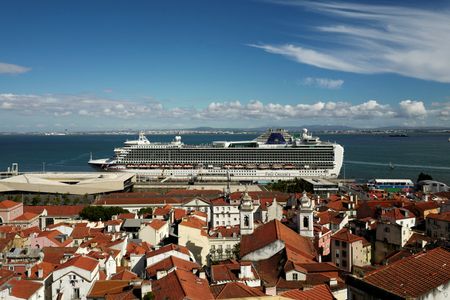(Reuters) -Most European ports are lagging in installing the shore-side electrical infrastructure needed for ships to switch from highly polluting marine fuel to cleaner electricity while docked, a new study showed on Tuesday.
European Union environmental rules have set a 2030 deadline for maritime ports to install the infrastructure to provide what is known as onshore power supply (OPS).
To assess their roll-out, Brussels-based NGO Transport & Environment (T&E) commissioned a study covering 31 European ports.
Findings show that just one in five of the required power supply connections have been installed or contracted so far, with slow uptake across most ports. Of the ports analysed, only four have installed or contracted more than half of the connections needed ahead of the 2030 deadline.
Residents living near ports hope the plug-in infrastructure can take some of the pain out of sharing their cities with cruise ships, which often leave their engines running in ports to power onboard amenities including lighting and air conditioning.
Pollution from marine fuels includes sulphur dioxide, nitrogen oxides and harmful particulate matter as well as carbon emissions.
The study also highlights significant disparities between ship types. While 38% of the required OPS connections for cruise and passenger ships are in place, container vessels are notably underserved, with only 11% of the needed 294 connections installed or contracted.
“Given their regular and predictable routes and the proximity of cruise passenger terminals to busy city centres, cruise ships should be prioritised for earlier OPS deployment and uptake,” the study said.
The ports of Antwerp, Dublin, Gdansk, and Lisbon are among those that have yet to make an investment in electric plug-in infrastructure, according to T&E.
In Lisbon, one of Europe’s busiest cruise ports, a multi-million-euro project to lay cables to connect the port to a power station is set to be ready by 2029, according to the Portuguese government.
(Reporting by Catarina Demony in London, Corina Rodriguez in Madrid and Doyinsola Oladipo in New York; Editing by Tomasz Janowski)











